
War crimes fugitive Ratko Mladic arrested
War crimes fugitive Ratko Mladic was arrested Thursday in village of Lazarevo. Gen. Ratko Mladic, Europe's most wanted war crimes suspect, has been arrested in Serbia after years in hiding, the country's president said Thursday.
Section:Picture story
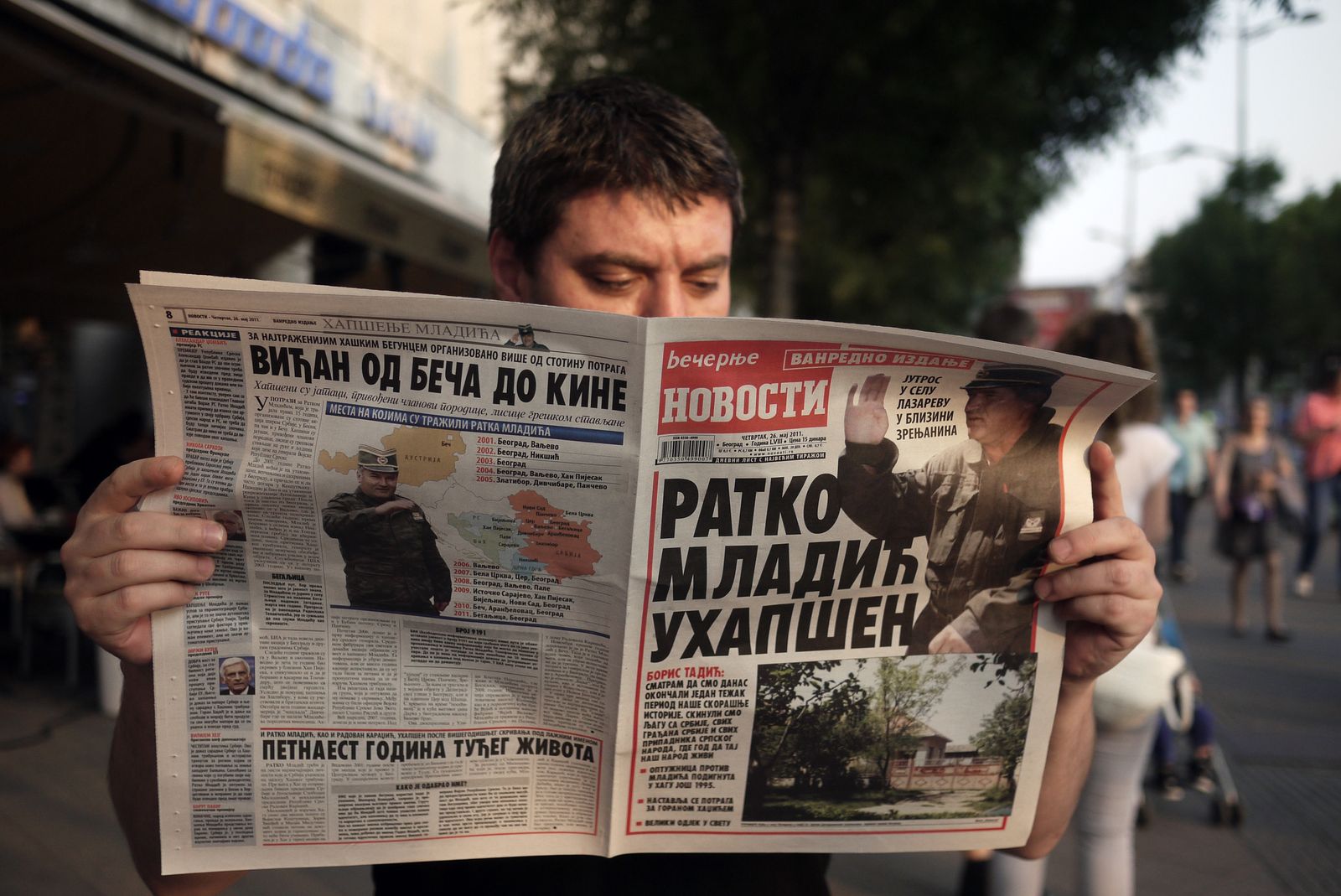
A man reads a special edition of the local newspapers, with the photo of Ratko Mladic and the words “Ratko Mladic Arrested” printed on the front page in Serbian Cyrillic script in central Belgrade, Serbia, Thursday, May 26, 2011.
Marko Drobnjakovic Associated Press
Associated Press
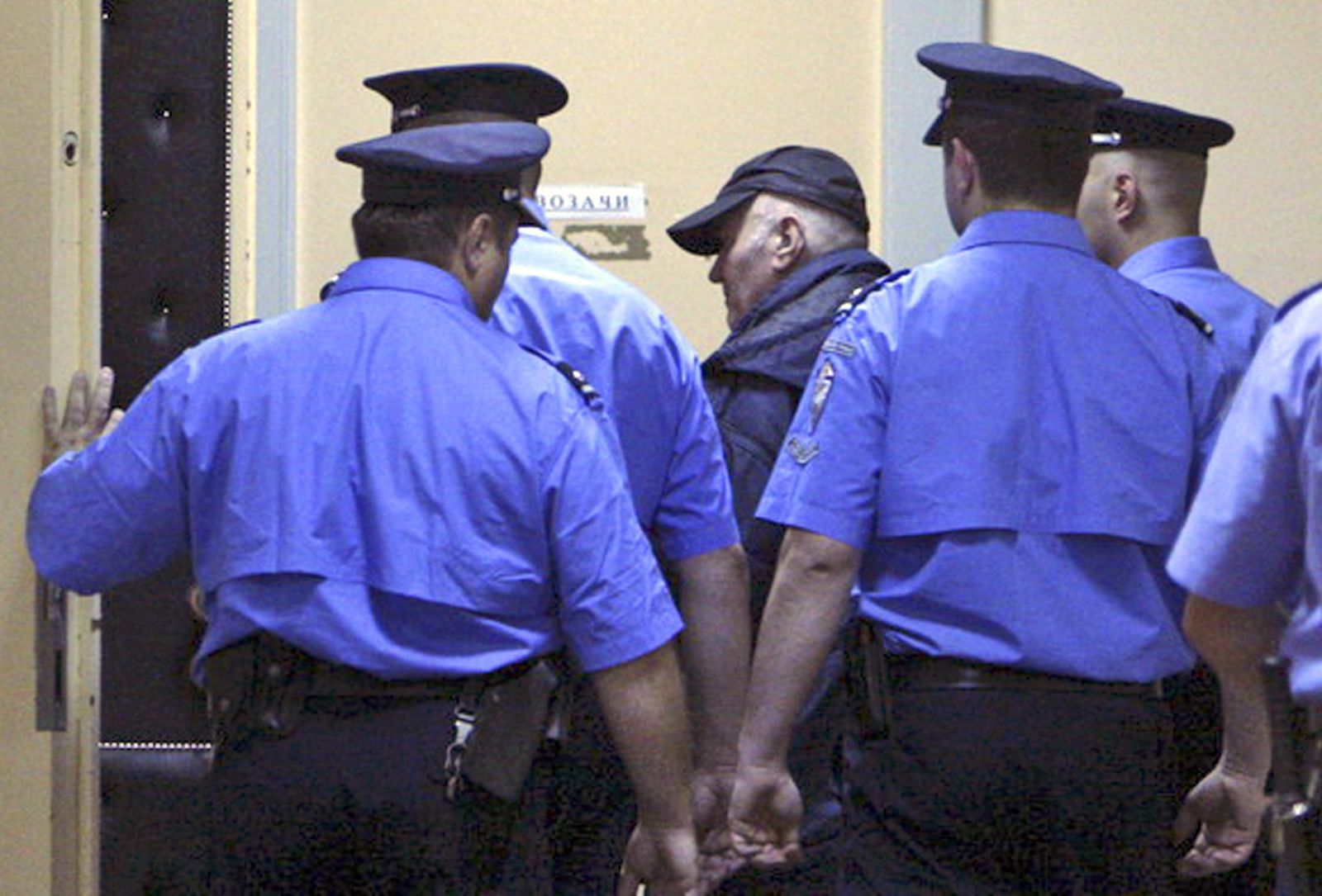
In this handout image released by the Serbian government Thursday, May 26, 2011, Ratko Mladic enters court in Belgrade, Thursday, May 26, 2011.
Serbian Government, handout Associated Press
Associated Press
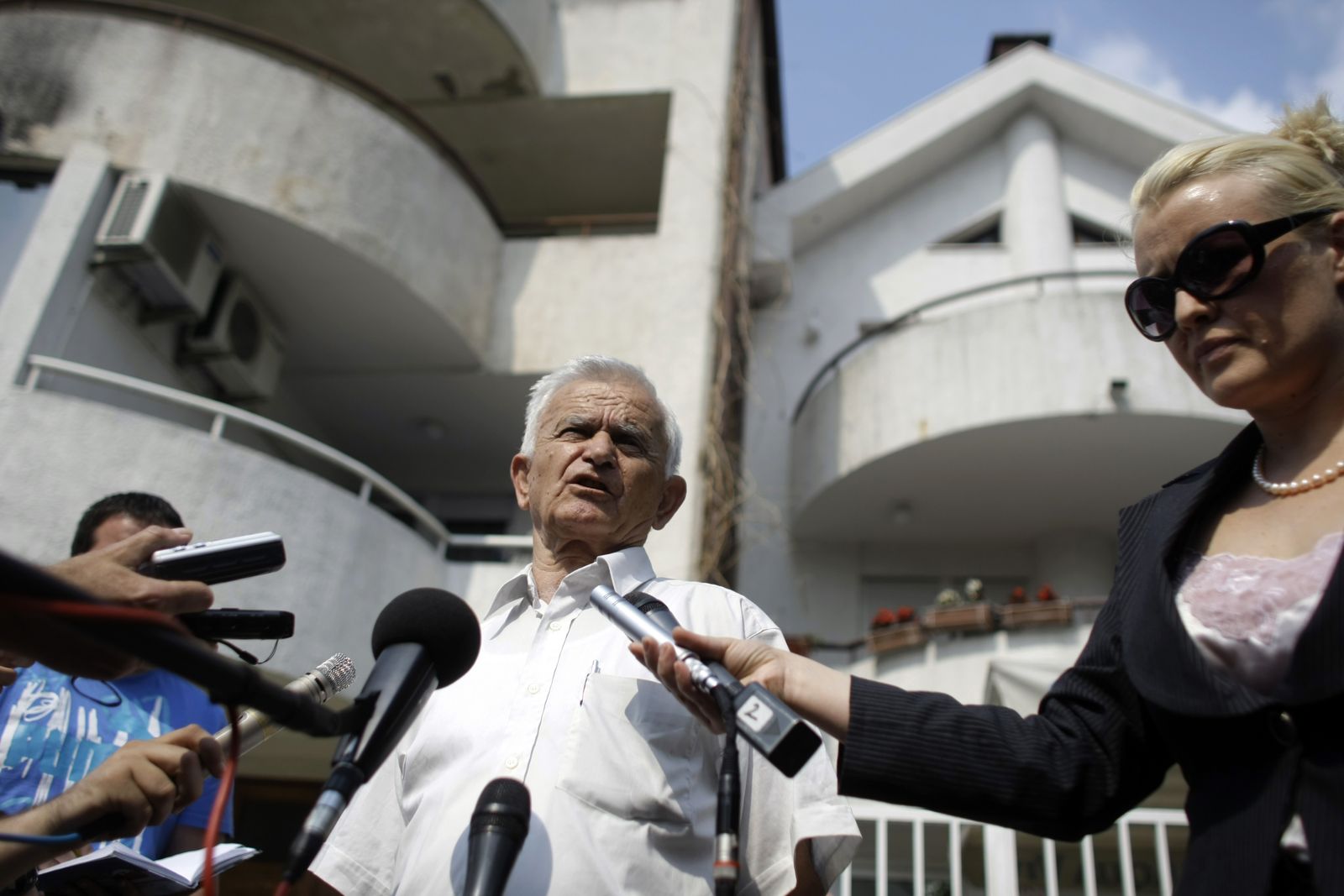
Milos Saljic, center, the lawyer of the family of Ratko Mladic, gives a press statement in front of a house owned by Ratko Mladic in a suburb of in Belgrade, Serbia, Thursday, May 26, 2011.
Marko Drobnjakovic Associated Press
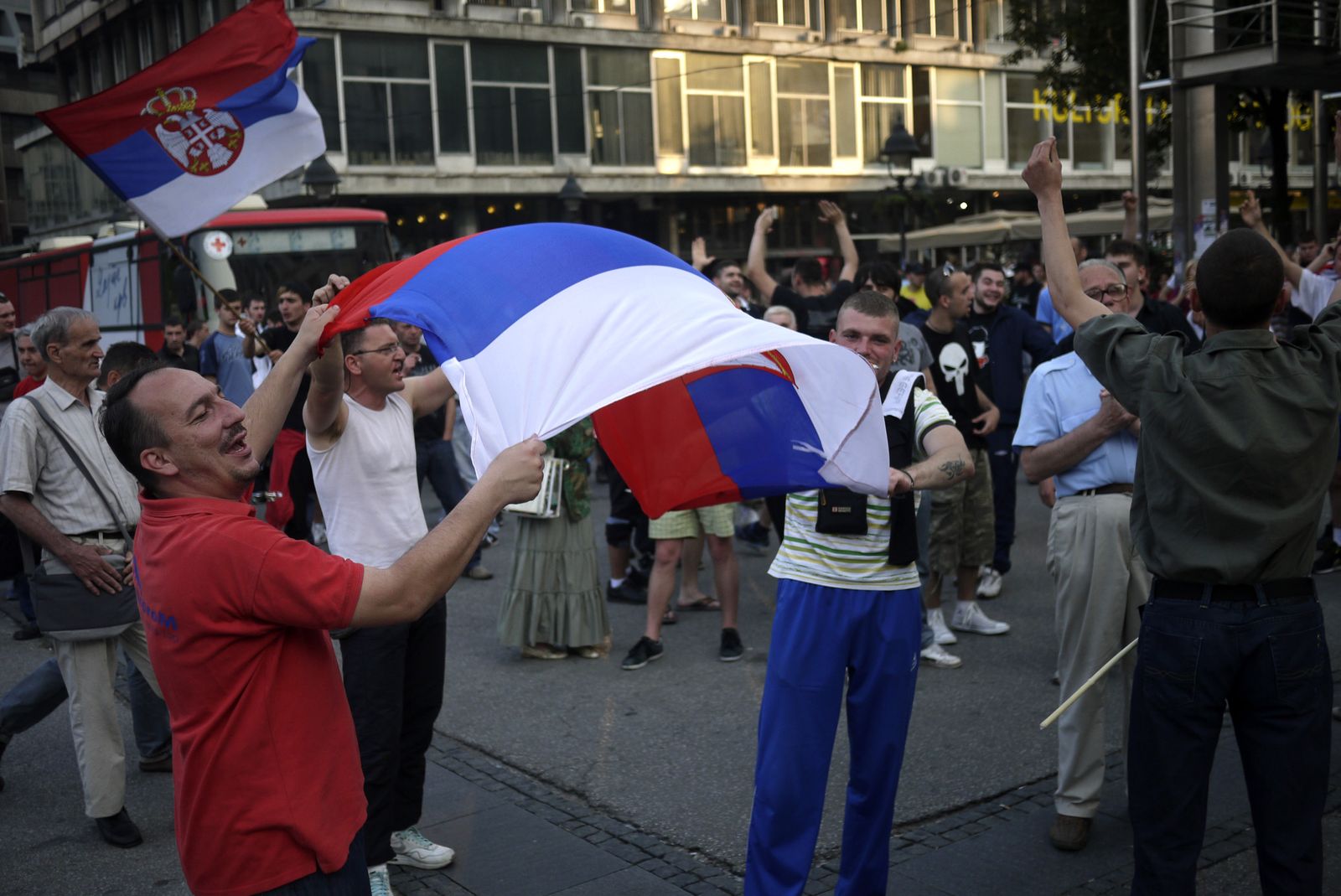
People that support Ratko Mladic chant songs as they wave Serbian flags in central Belgrade, Serbia, Thursday, May 26, 2011.
Marko Drobnjakovic Associated Press
Associated Press
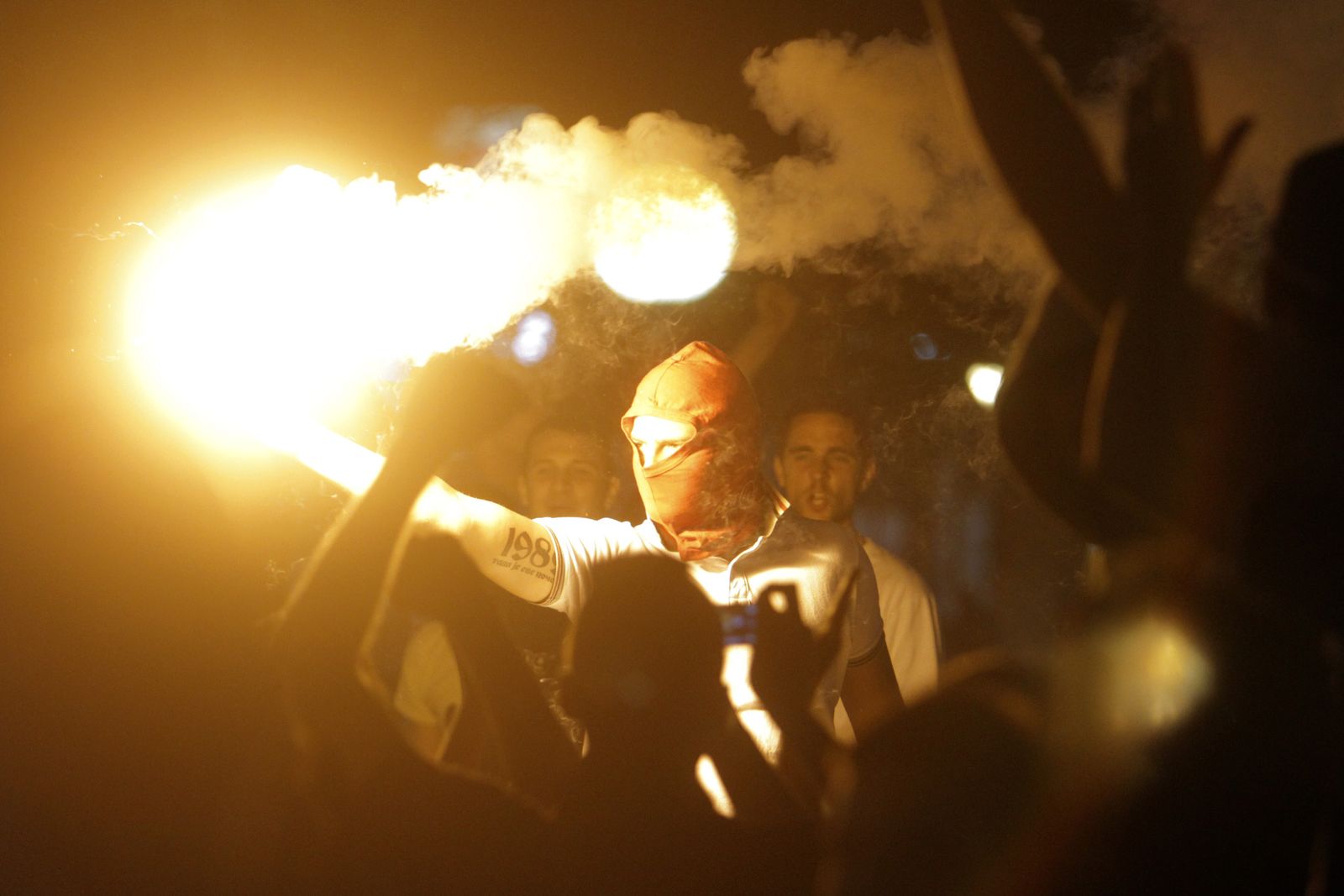
A supporter of Ratko Mladic lights up a flare as others chant songs at a protest against Mladic’s arrest in central Belgrade, Serbia, Thursday, May 26, 2011.
Marko Drobnjakovic Associated Press
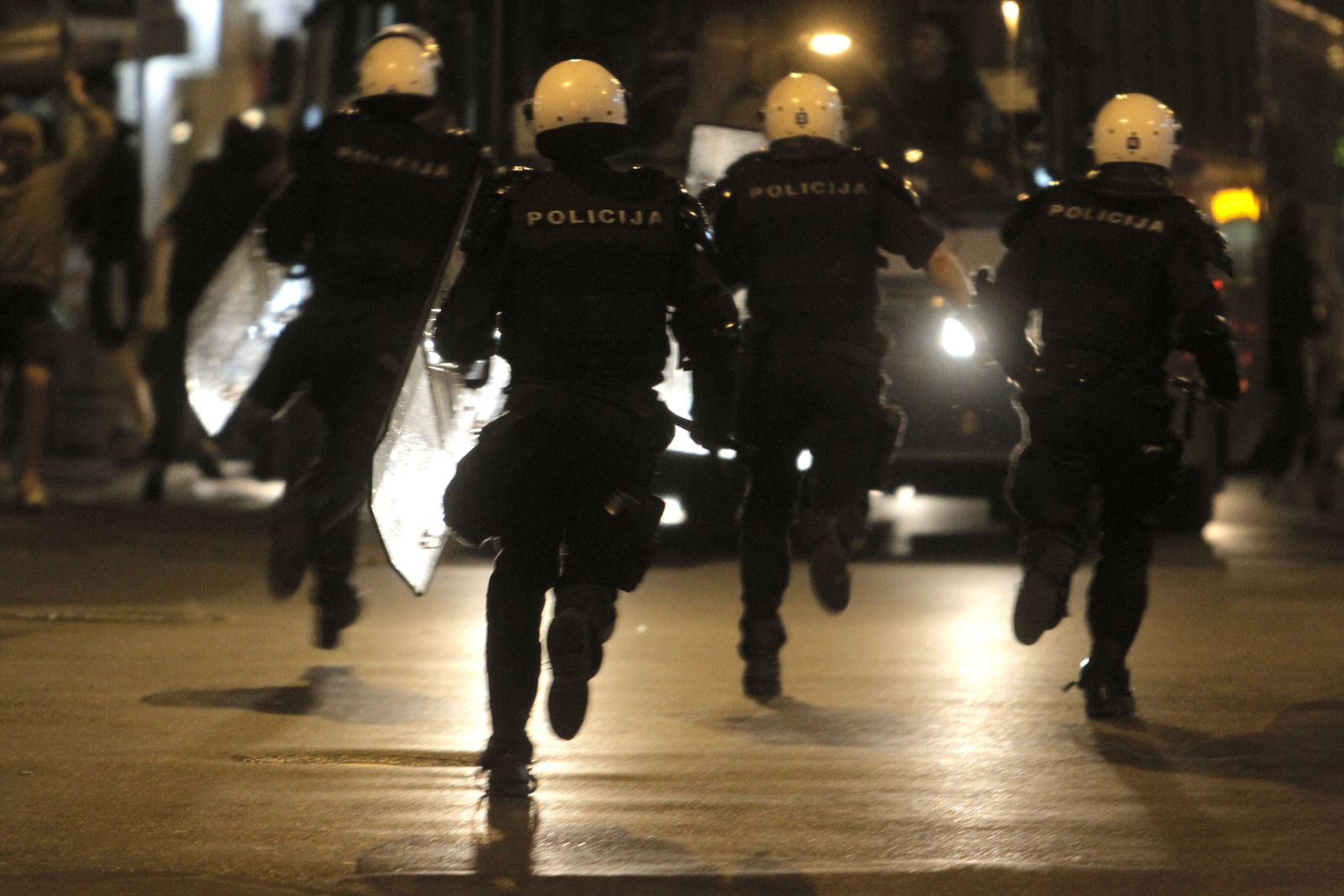
Members of the Serbian riot police run down a street at a protest against Ratko Mladic’s arrest in central Belgrade, Serbia, Thursday, May 26, 2011.
Marko Drobnjakovic Associated Press
Associated Press
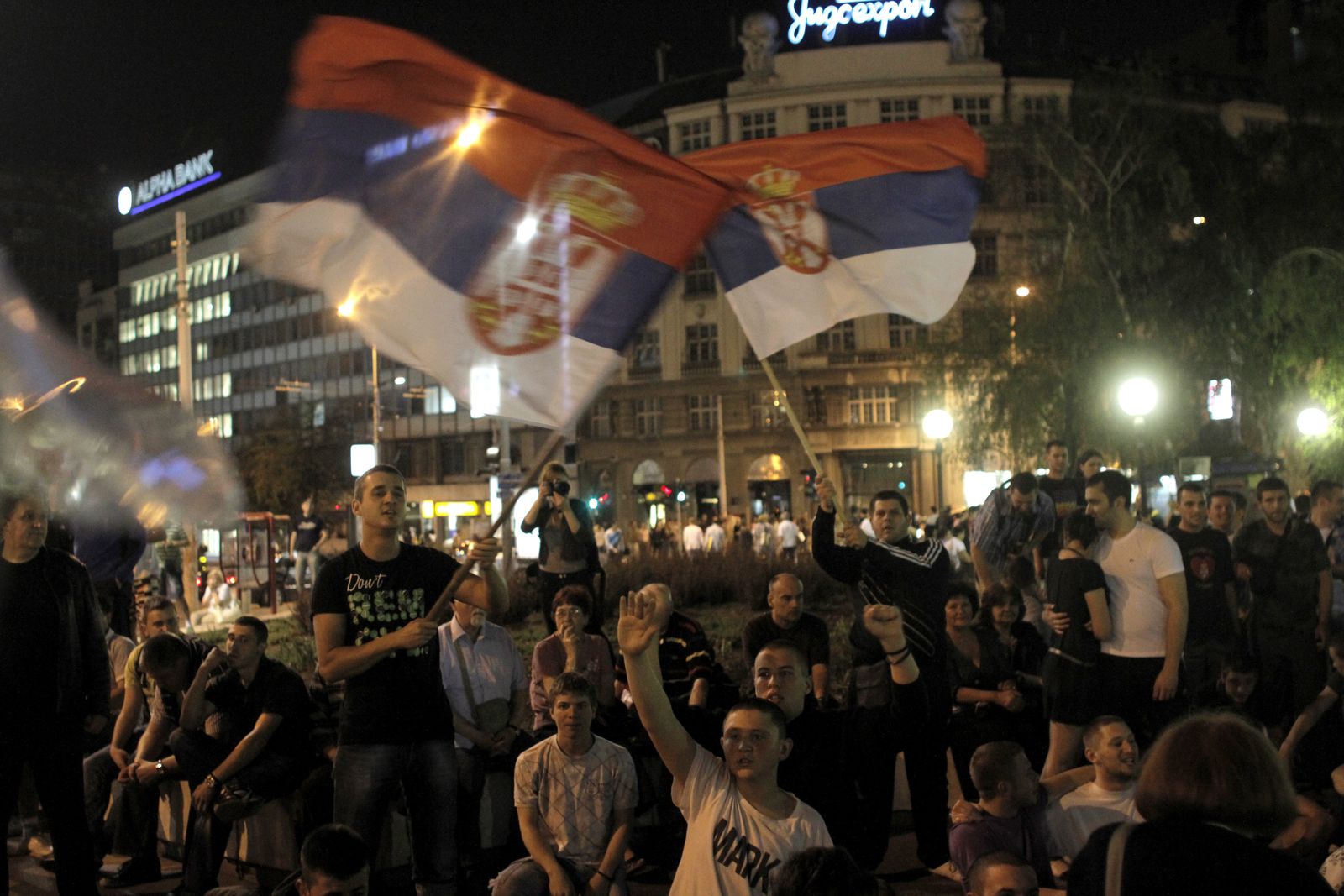
Supporters of Ratko Mladic chant songs and wave Serbian flags at a protest against Mladic’s arrest in central Belgrade, Serbia, Thursday, May 26, 2011.
Marko Drobnjakovic Associated Press
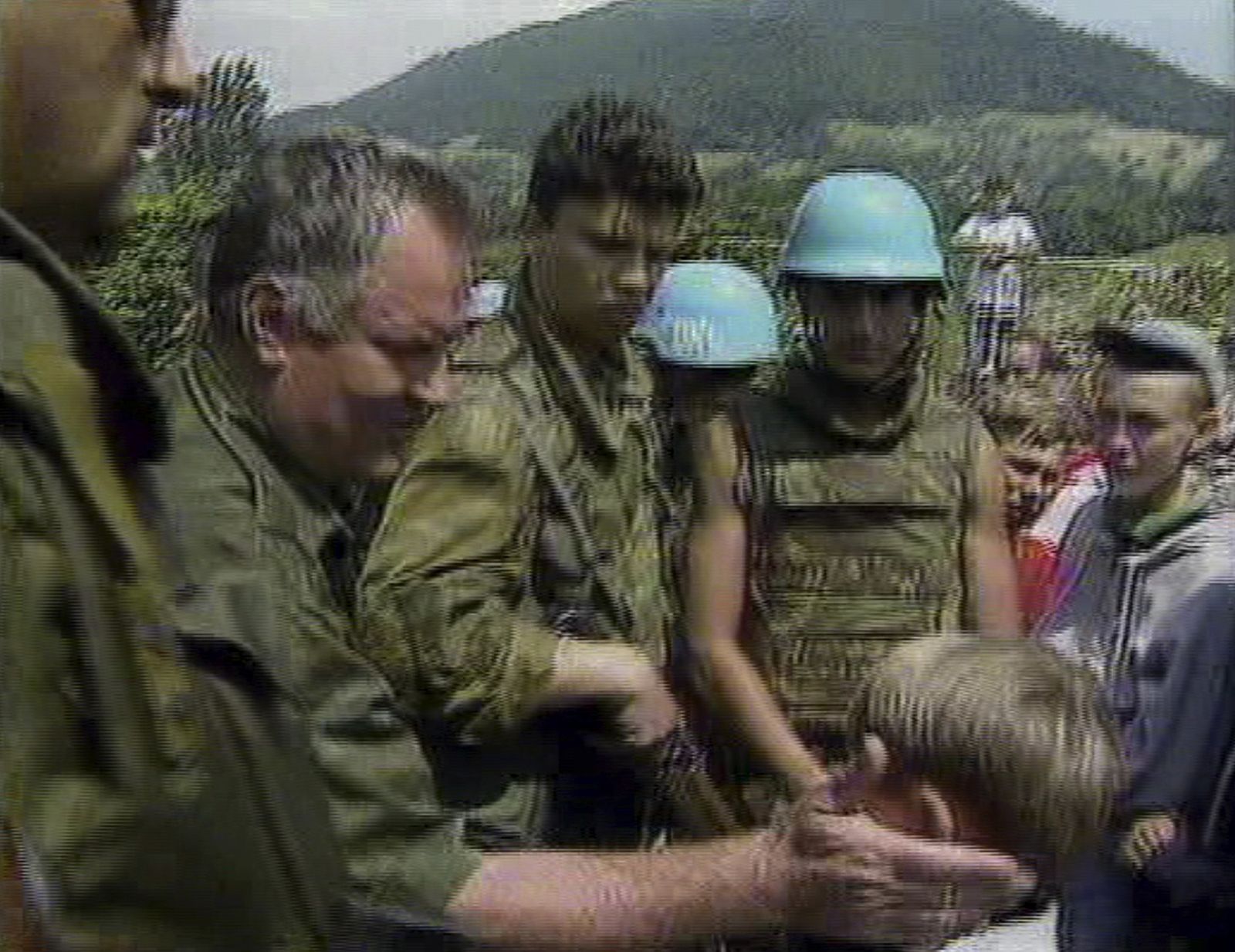
This image from file video shows Bosnian Muslim boy Izudin Alic being patted on the head by a grinning Ratko Mladic in 1995 as Mladic assures him that everyone in Srebrenica, Bosnia, would be safe as other young Bosnian Muslims look on, just hours before overseeing the murder of some 8,000 men and boys. But Izudin Alic escaped with his life to bear witness to the incident. Sitting in his home in Srebrenica, Bosnia, on Tuesday May 31, 2011, 24-year old Alic recalls the sunny day in 1995 when he met with the Bosnian Serb military commander Mladic, who gave him chocolate, even as soldiers were killing his father in the nearby woods. The fugitive Mladic has been arrested on charges relating to alleged war crimes during the Bosnian 1992-95 war.
APTN Associated Press
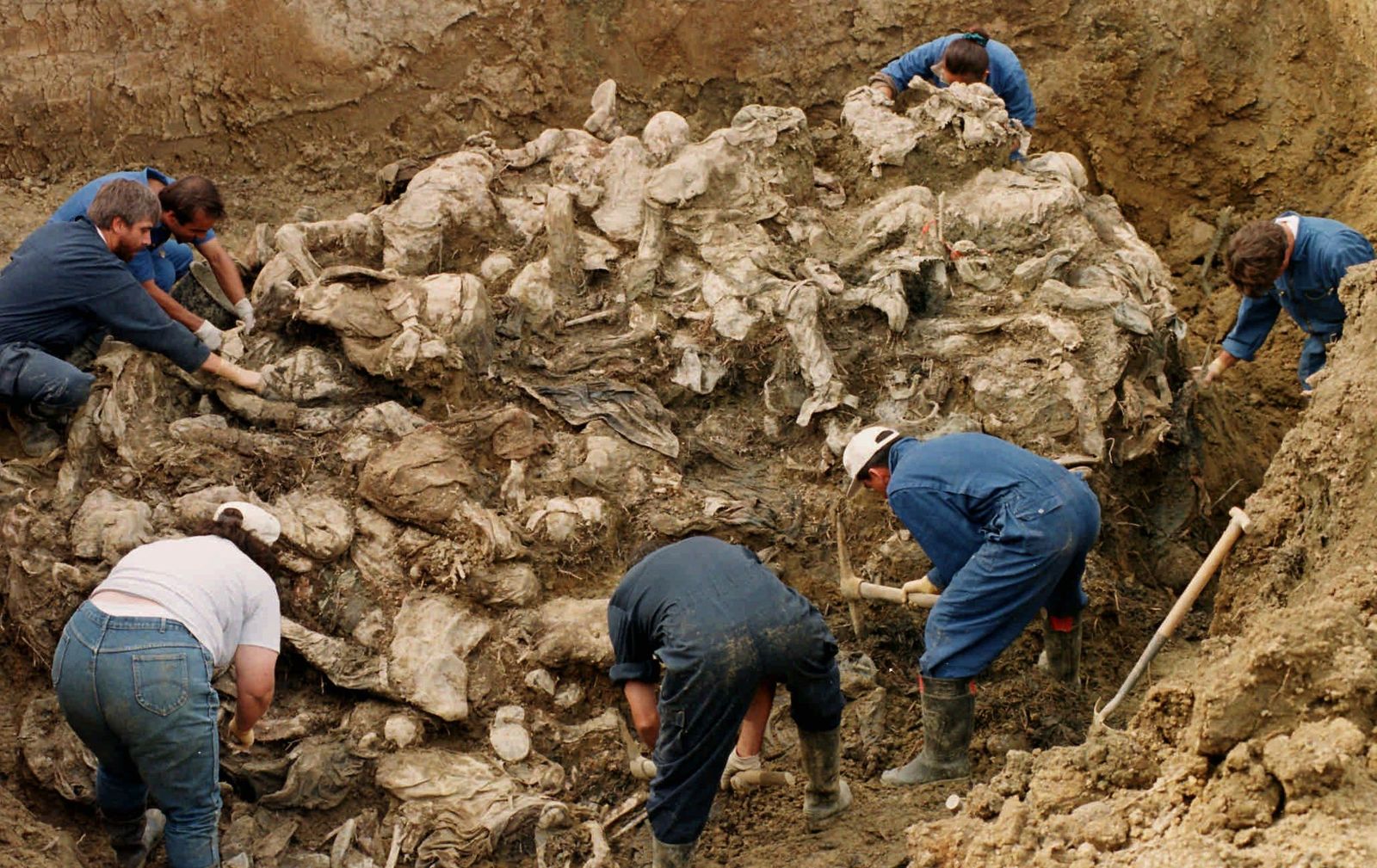
In this Wednesday, September 18, 1996 file photo, six International War Crimes Tribunal Investigators clear away soil and debris from dozens of Srebrenica victims buried in a mass grave near the village of Pilica, approx 55kms (32 miles) north east of Tuzla, at a former pig farm.
Staton R. Winter, File Associated Press
Associated Press
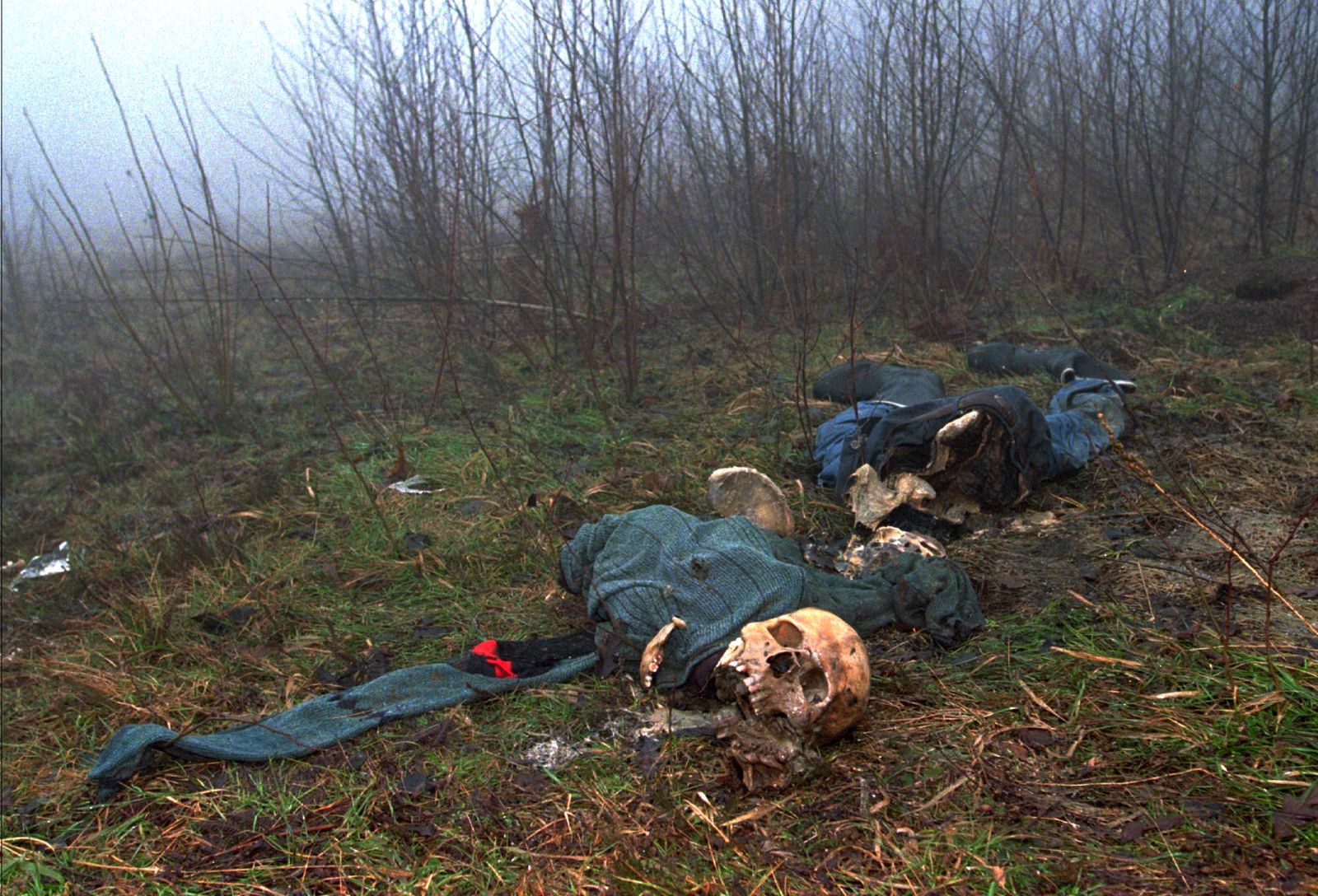
In this Sunday, Feb. 4, 1996 file photo, skeletal remains of victims of the 1995 massacre at Srebrenica lie on a hilltop just west of Srebrenica, Bosnia.
Alexander Zemlianichenko, File Associated Press
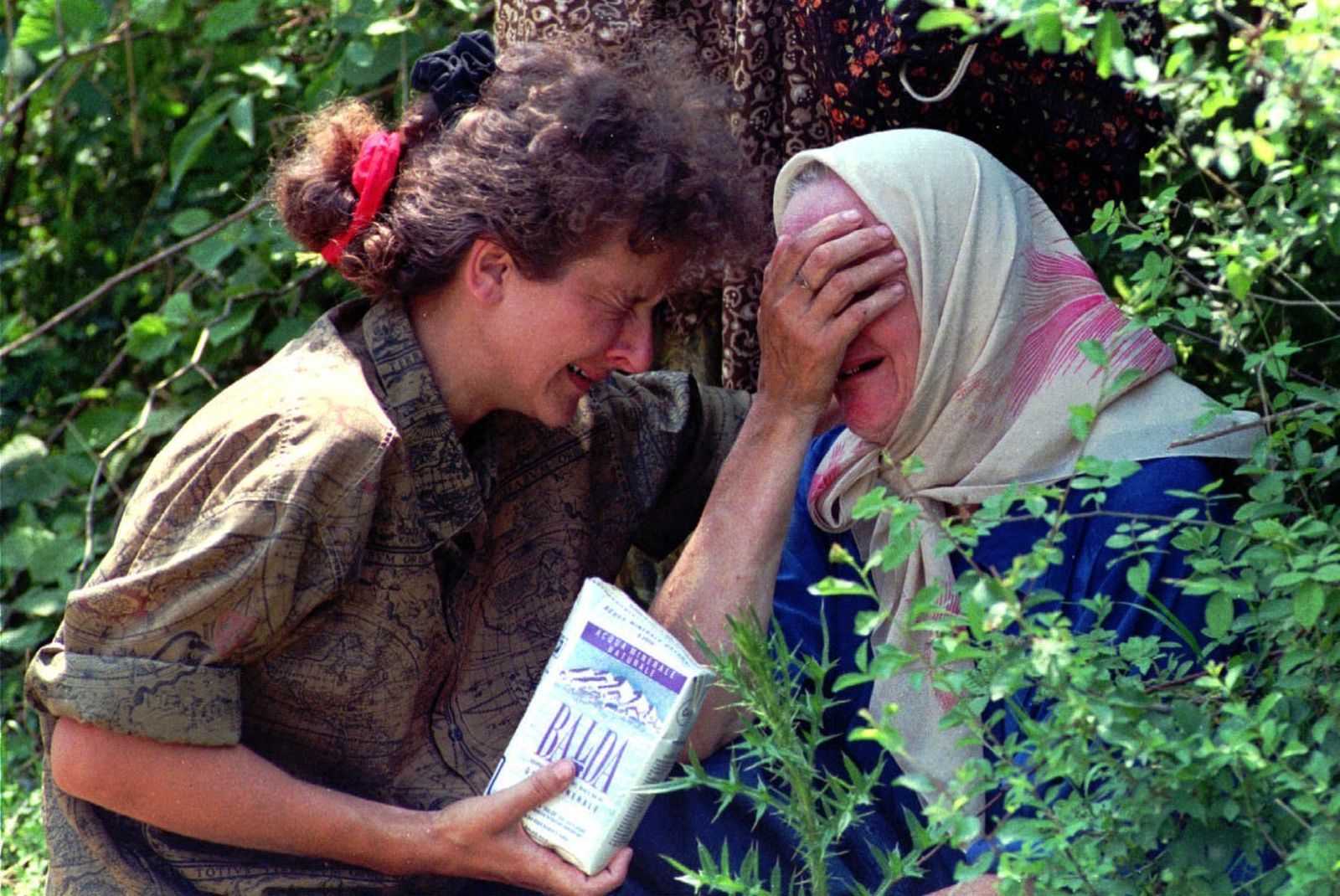
In this Thursday, July 13, 1995 file photo, an unidentified woman and her mother, refugees from Srebrenica, cry together because they don’t know what happened to the rest of their family, at a U.N. base 12 kms south of Tuzla, 100kms (60 miles) north of Sarajevo.
Darko Bandic, File Associated Press
Associated Press
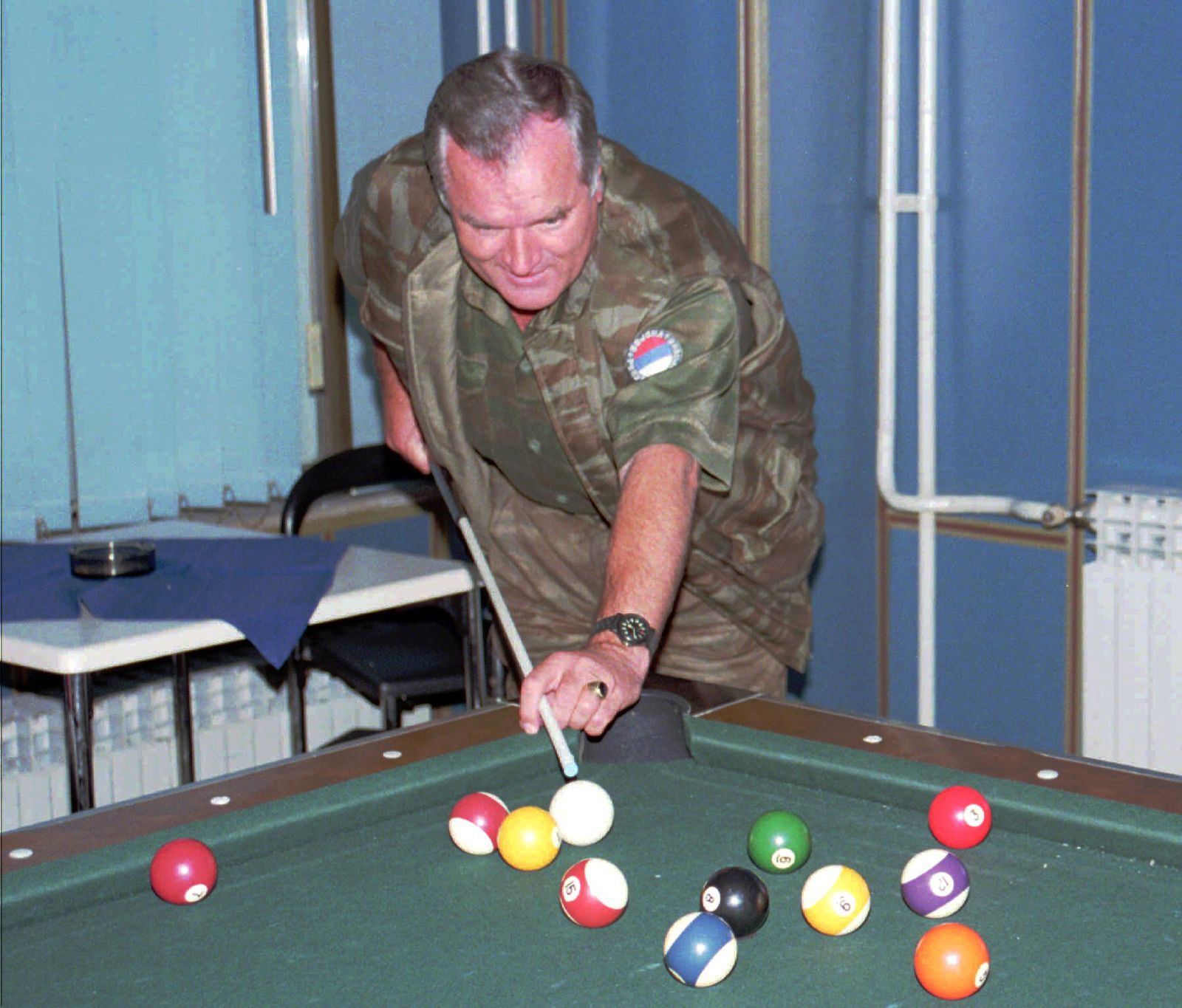
In this Sept. 1, 1995 photo, Bosnian Serb commander Ratko Mladic plays pool during the pause in talks with U.N. commander Bernard Janvier in the town of Mali Zvornik,Yugoslavia, some 170 kilometers (110miles) south-west of Belgrade.
Sava Radovanovic Associated Press
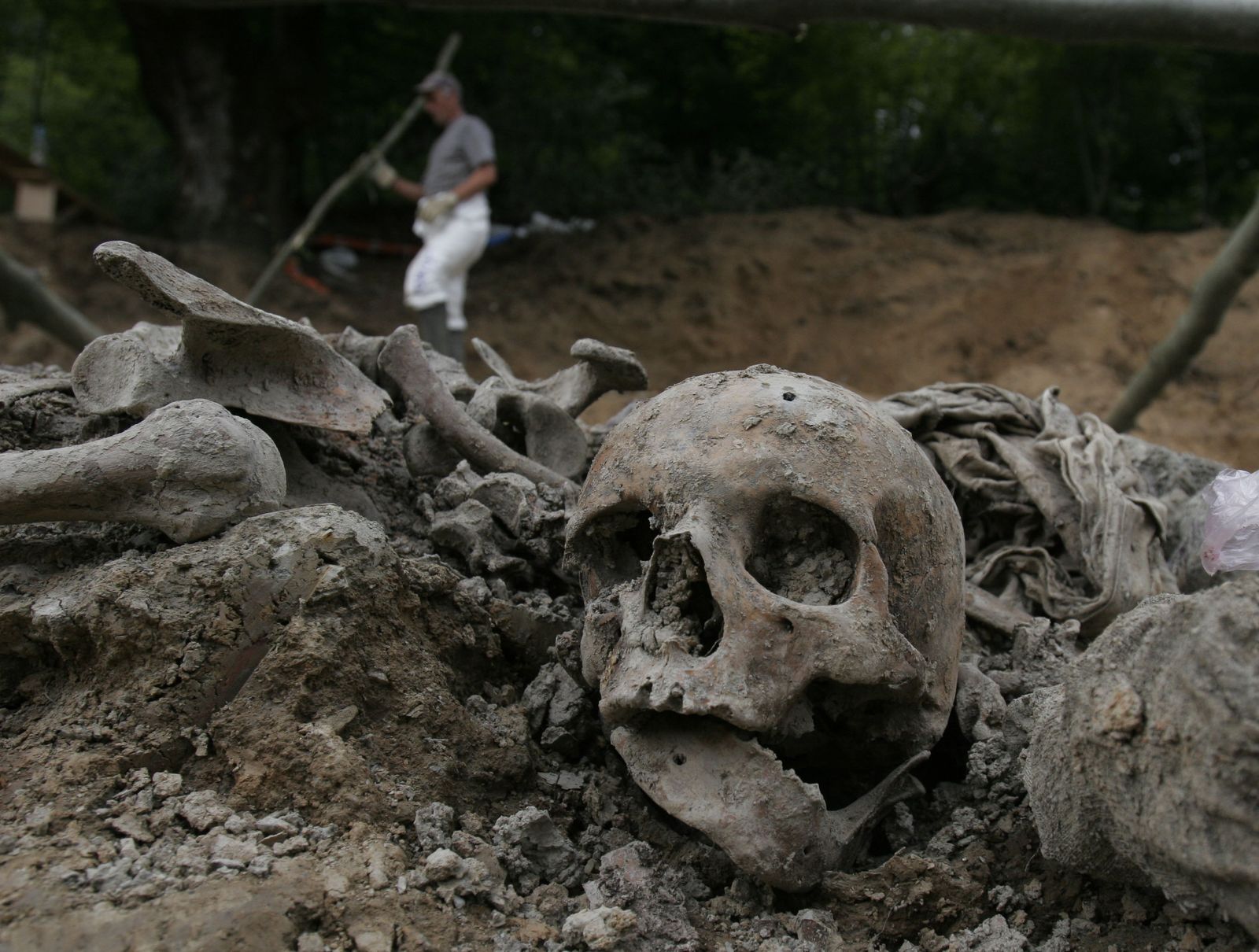
In this Tuesday, July 10, .2007 file photo, a Bosnian worker passes by a human skull during exhumation at the mass grave site in the village of Budak, Bosnia, a few hundreds meters from the Memorial Center at Potocari near Srebrenica, Bosnia.
Amel Emric, File Associated Press
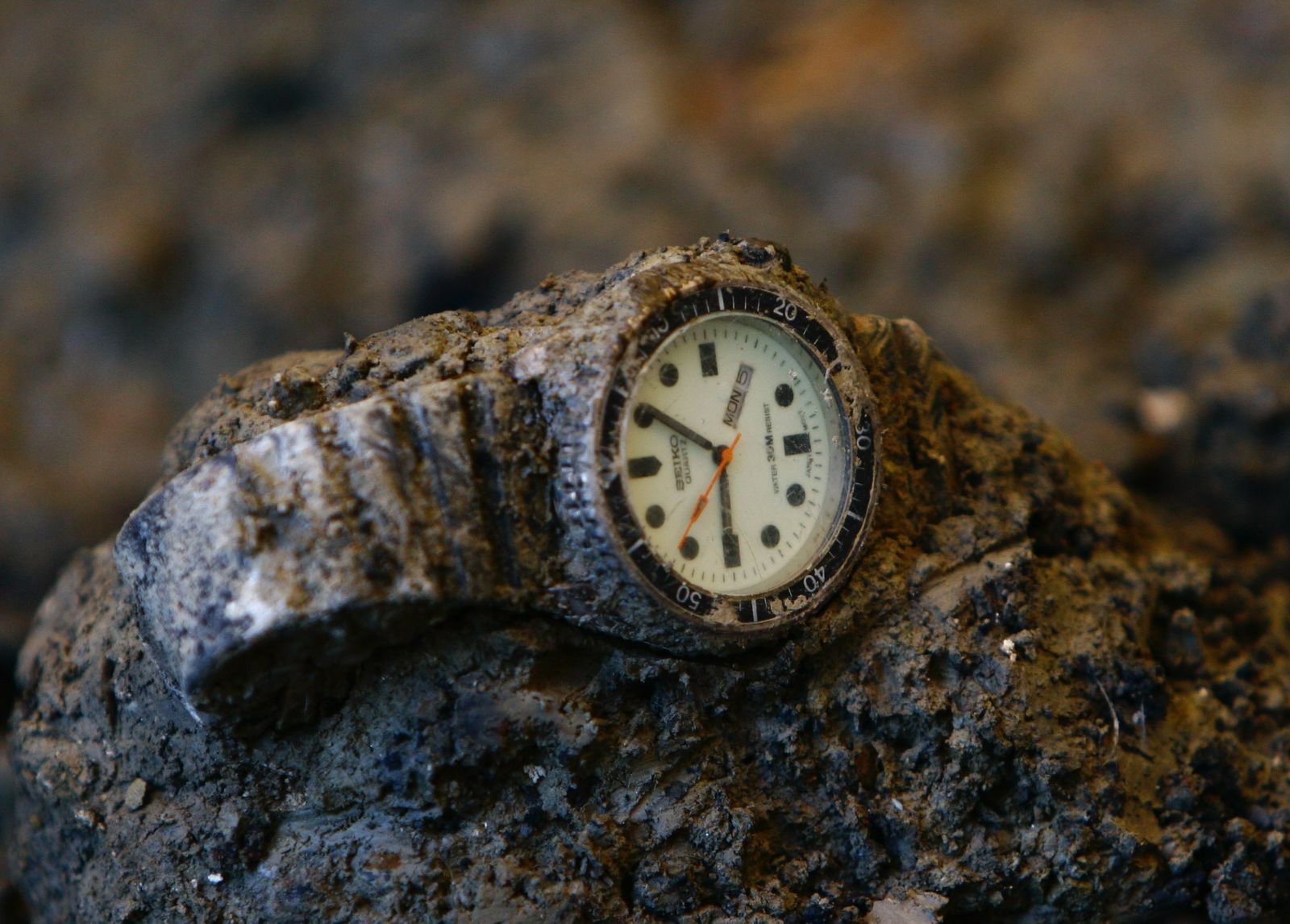
In this Tuesday Sept 5, 2006 file photo, a watch belonging to a victim lays in mud during exhumation at the mass grave site find in the village of Zeleni Jadar, in the outskirts of the eastern Bosnian town of Srebrenica, 120 kms north of Sarajevo.
Amel Emric, File Associated Press
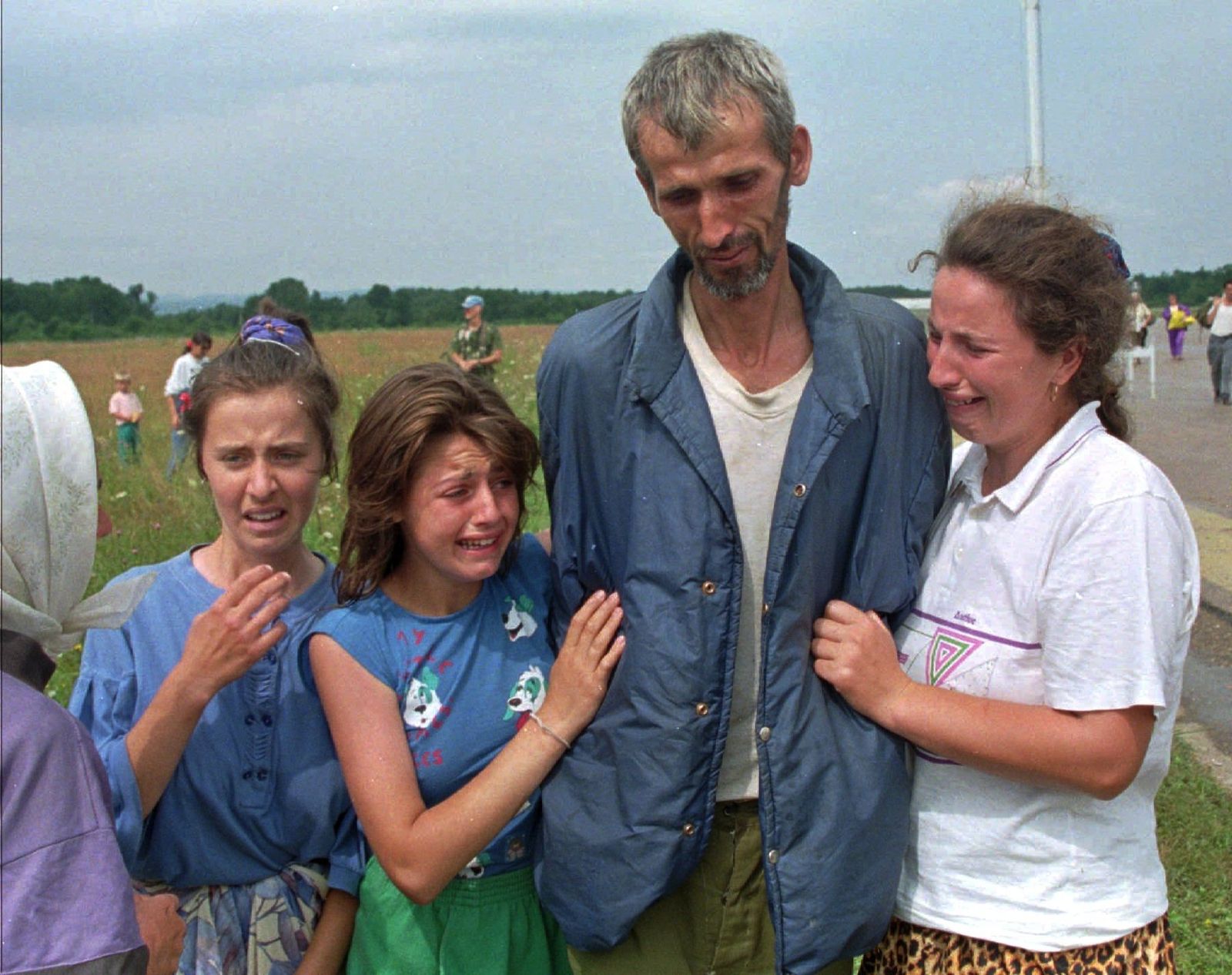
In this Monday July 17, 1995 file photo, Bosnian refugees cry as their father and husband arrives at the U.N. air base in Tuzla, Bosnia, after he survived the death march of six days from Srebrenica.
Michel Euler, File Associated Press
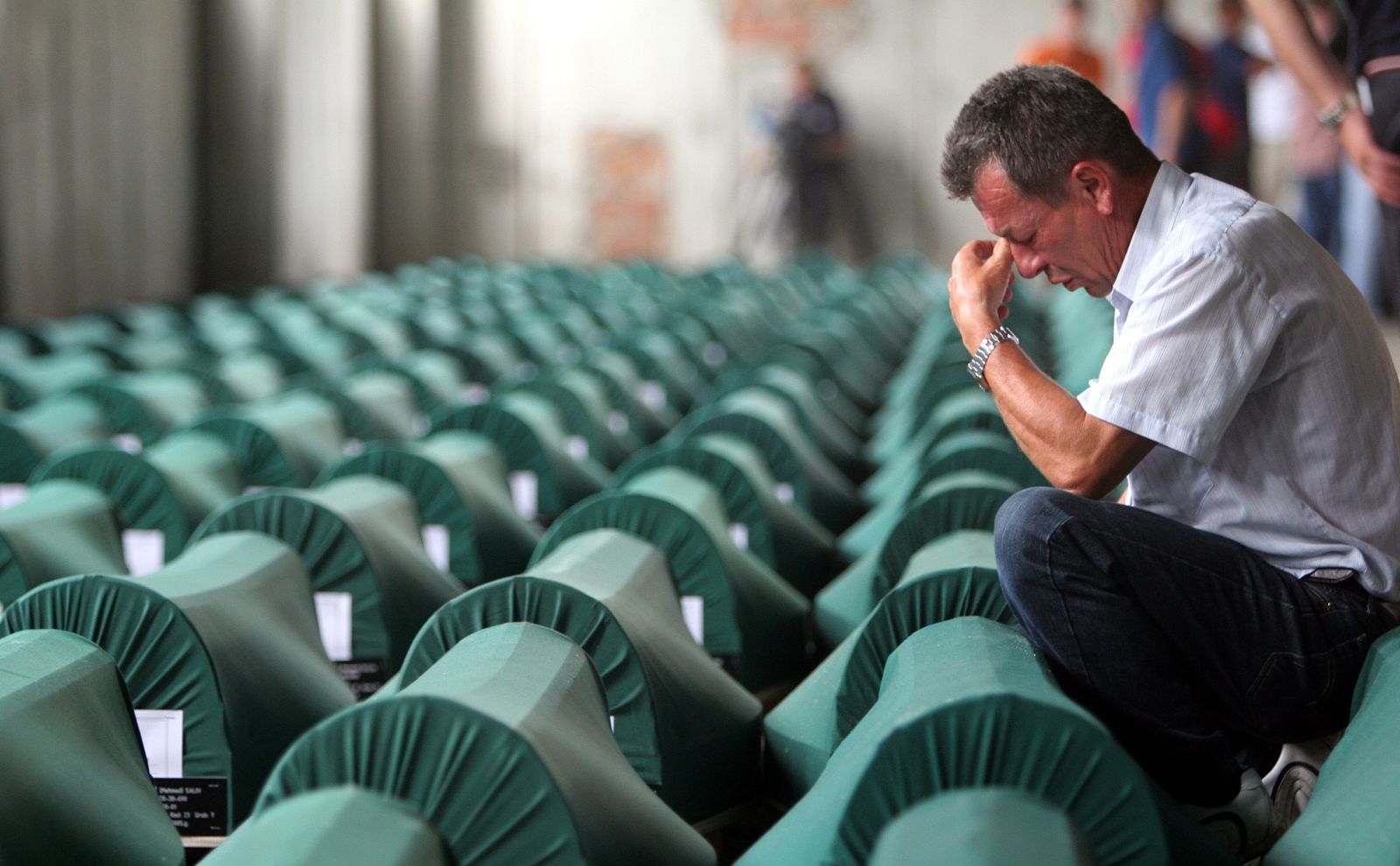
In this Sunday, Feb. 4, 1996 file photo, skeletal remains of victims of the 1995 massacre at Srebrenica lie on a hilltop just west of Srebrenica, Bosnia.
Alexander Zemlianichenko, File Associated Press
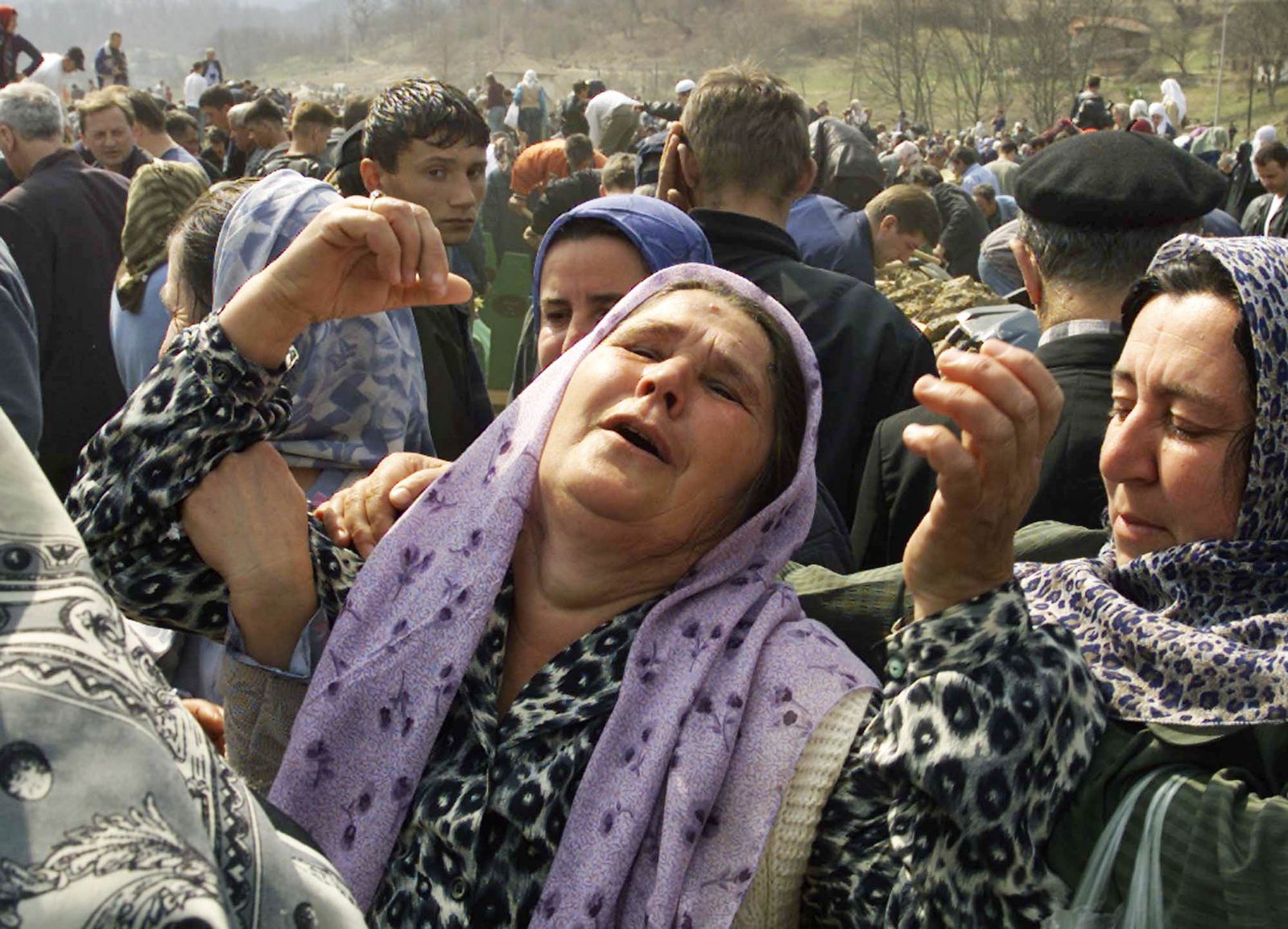
In this Monday, March 31, 2003 file photo, a Bosnian Muslim woman weeps as she attends a mass funeral for the first 600 identified victims of the Srebrenica massacre, in the village of Potocari near Srebrenica, 75 kms southeast of Tuzla.
Amel Emric, File Associated Press
Associated Press
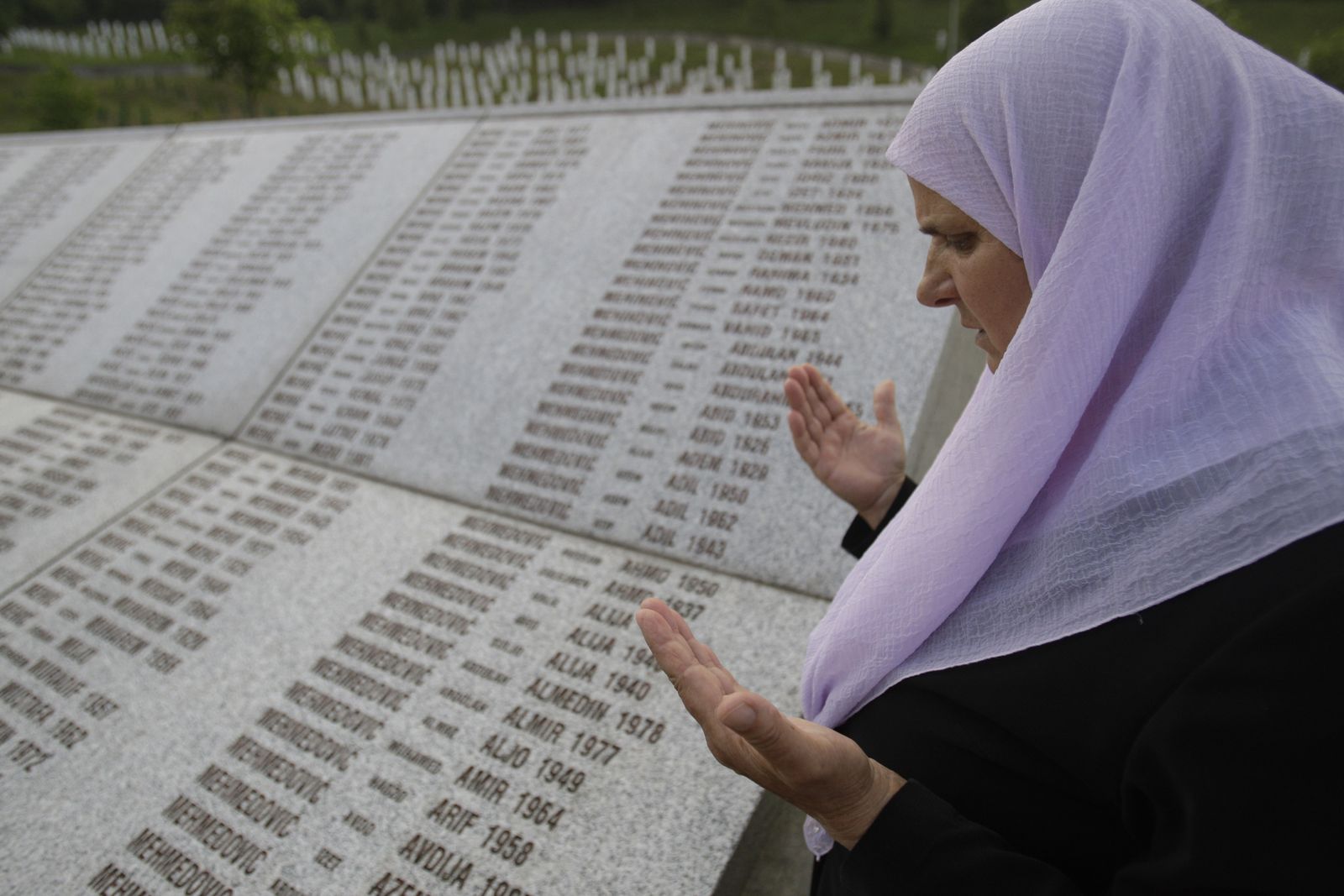
Bosnian Muslim woman Hatidza Mehmedovic says her prayer in front of the wall written with names of victimes of Srebrenica masacre at the memorial center Potocari near Srebrenica, 170 kms north east from Sarajevo, Bosnia, on Thursday May 26 2011.
Amel Emric Associated Press

Bosnian Muslim man Azer Ibric says prayer in front of the grave of his relative at the memorial center Potocari near Srebrenica, 170 kms north east from Sarajevo, Bosnia, on Thursday May, 26, 2011.
Amel Emric Associated Press
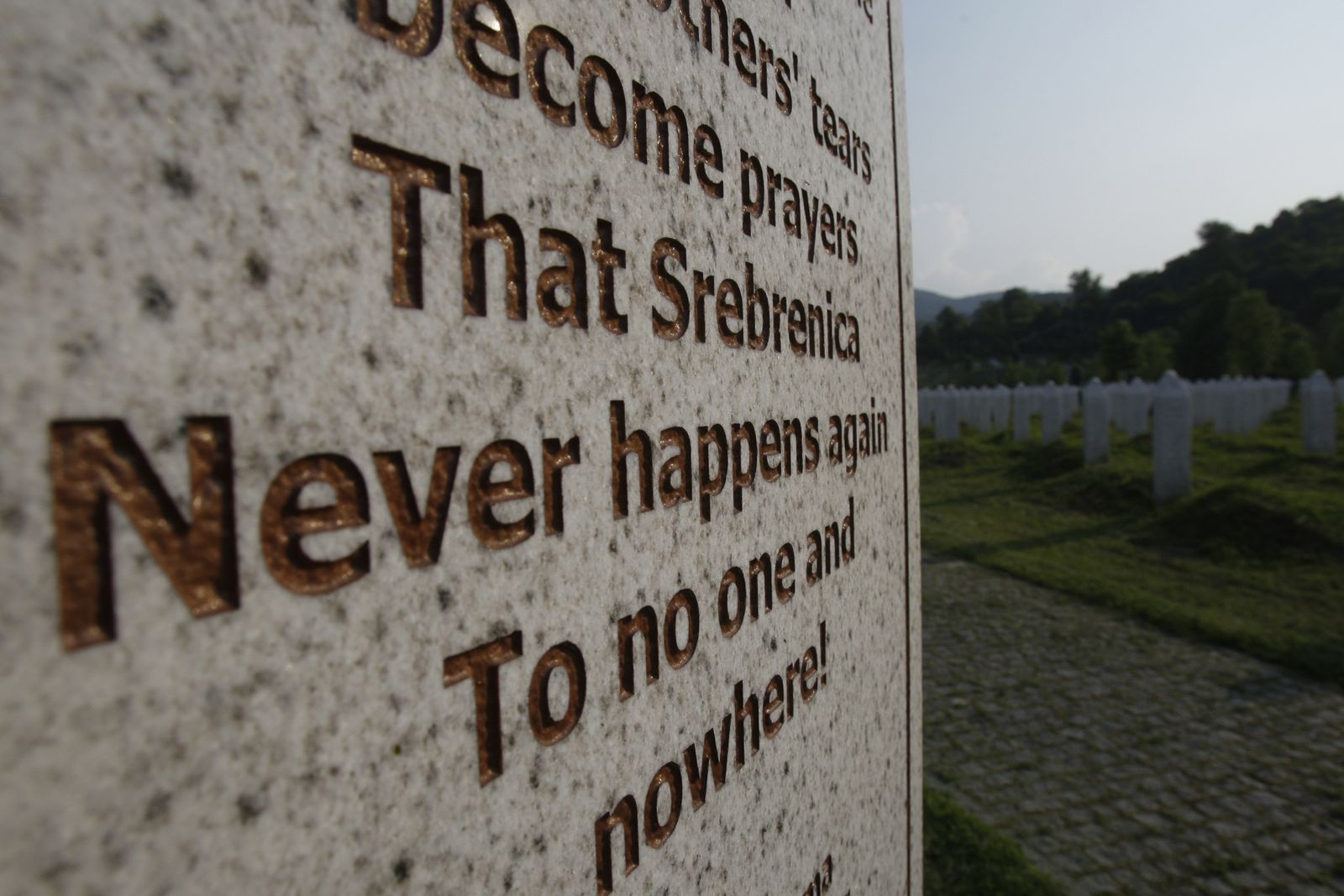
A gravestone in memory of victims of the Srebrenica massacre is seen at the Potocari memorial center near Srebrenica, Bosnia, Thursday, May 26, 2011.
Amel Emric Associated Press
Associated Press